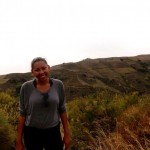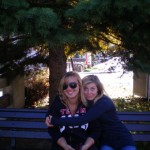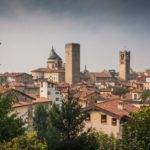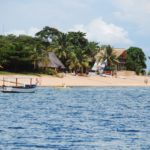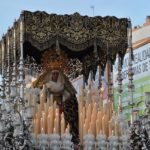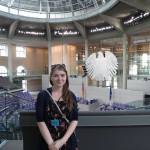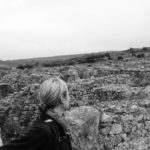Going Off the Grid in Portugal
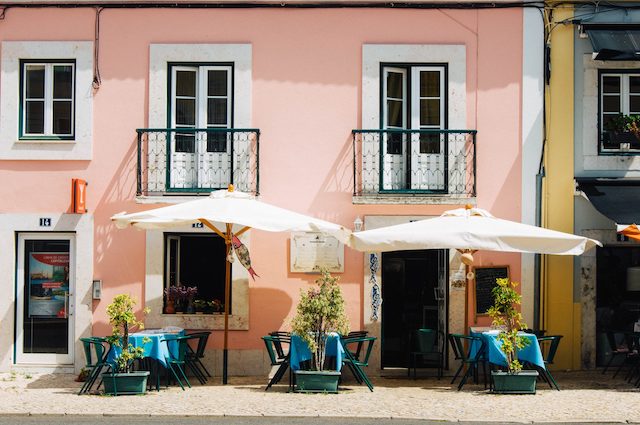
I never meant to go to Portugal. Spain was the target, with plans to eventually move on to the east: Madrid, Malaga, Barcelona, Sitges. Stations whirring by on the rails, the Pyrenees, Nice, Cannes, Ventimiglia. The Leaning Tower of Pisa. Firenze. Roma. A boat. Athena. Ending in those mystical Cycladic Islands floating forever somewhere between Europe and Africa. My first stop was a homestay in the north of Spain, in a tiny town called Ledesma. The town descended from the Rio Tormes in a tumble of terracotta-roofed houses and ancient stone walls. My arrangement was through a volunteer exchange website for expats. It was never in my plan to go off the grid in Portugal.
We spent long days on a community building project in the courtyard of the ancient palace, whose wooden lunette doors exited onto the plaza. The palace was small as Ledesma is a very small town, but it had once lain the heads of Isabel and Ferdinand.
The palace had been purchased for restoration by a character of a British gentleman named Ron, under whose direction we helped to restore the courtyard and the bottom floor. Ron lived on the upper level, above the portico. We expats also shared these rooms as part of the arrangement.
We decided to go off the grid in Portugal on a whim, on one of these slow, dreamy days, a day like any other at that time but that I now look back on with such warmth.
Entering the palace through the lunette doors I was taken back to the 15th century. The stone walls held an impenetrable chill even as the sun outside shone 14 hours a day this far north. The items of furniture were relics from a bygone era: upholstered settees of ragged red velvet, faded wainscot chairs and scarred Gothic oak coffers adorned the rooms of stone.
The walls were white and cracked from centuries of settling, and one wire, whose origin I never knew, was nailed down the center of the ceiling and into the hall, ending in one bare light bulb that was the only light in the living space. The sun gave all the light that was needed through the large, mullioned windows. By night, we used candles in our rooms.
There were four or five of us at any given time: Masha the Russian, Logan the Aussie, Adali and Franz the Germans, Rose who came briefly passing through from Hong Kong, Oliver who came from Ireland when Masha left, and Madeline, Ron’s grandmotherly friend from Britain by way of Germany, who came every year in May and made us daily high tea every day in classic English style. I was the American.
We excavated stone to make benches and archways of it by day in the courtyard, and drank wine, played cards by candlelight and talked at night. We gathered wild fennel from among the high grasses on the river bank, and played frisbee down by the river at lunch time, when the sun was the highest and made manual labor excruciating. By nightfall, we used the fennel to make homemade falafel and salads made of sour greens that grew on the hillside.
One week we ate only an enormous wheel of dense, succulent cheese and boules of bread that someone had bought at the spring fair on the grounds of the impressive fortaleza.
We would take a day off here and there, gambolling over the hills and through the oak-flanked northern Spanish countryside packed into Ron’s tiny, sputtering Renault. He knew where all of the hidden Roman baths were out in the fields, and we’d cool down in their fresh, clear waters while watching baby goats scuffle on the rocks that defined the terrain, butting their newly sprouted antlers.
To say Miranda do Douro is not a tourist town would be an understatement. There are a few hostels and hotels, but for the most part it is way off the grid in Portugal.
We decided to go to Portugal on a whim on one of these slow, dreamy days, a day like any other at that time but that I now look back on with such warmth. Ledesma was, after all, only about an hour away from the border. Of course we would go.
We headed out in the Renault with the windows all cranked down, the sweet air from the rural roads blowing in the windows, Franz hollering about something because he’d had a bit too much beer that morning, Oliver telling jokes, Ron attempting to put on his circulation hose while also driving the car, Madeline holding the wheel and tittering for Ron to keep his eyes on the road. Meanwhile, Adali sat on my lap and we laughed and laughed all the way through the rock-riddled, dirt road passes, ascending up to the top of the gorge before dropping back down again.
At the top there were the most glorious view of the green, expansive waters of the Douro River. To mark our arrival into Portugal there were both the vertically terraced green vineyards of the Douro Valley, reminiscent of the rice paddies of Asia, and a checkpoint where a border police asked for identification.
We all got out our passports except Franz. He suddenly realized that he had not brought his papers. The Douro border patrol scowled into the window at him. “Out,” he commanded, in heavily accented English.
We were held up by the terraced vineyards of the Douro Valley for the next hour, splitting the line between Portugal and Spain, while border patrol held and ran checks on Franz in the tiny station house, claiming he matched the description of a suspect. Finally, Franz was released and we were allowed to pass into Portugal.
Eastern Portugal immediately dropped us into the arms of the Douro River canyon. From the Portuguese side you could see the steep, stunning climes of the Spanish rock walls that lined the river. Light cut around the river’s bends, dropping between the walls, illuminating the waters and portions of the stone chasm.
Seeking to find yourself is a privilege in itself, although sometimes it’s also a struggle.
Miranda do Douro is set upon the river, beckoning in its quiet beauty. Handsome, ancient stone walls and buildings are contrasted by whitewashed homes with beige window trim. I and our group of bedraggled expats, still covered in a layer of silty dust from working in the courtyard that morning, set out upon the town. Local eyes followed us everywhere we went.
To say Miranda do Douro is not a tourist town would be an understatement. There are a few hostels and hotels, but for the most part it is way off the grid in Portugal, located in the northeast, far from Porto or Lisbon or the beaches of the western coast. The shops here sell regional products, meats and cheeses, and there are many linen shops as the outer area is home to factories that produce towels.
We wandered the cobbled streets, stopping into small shops and taking photos in front of the green doors of the Misericordia Church. Shopkeepers stared warily when we first stepped in, but soon broke smiles and gave “bom días”. There was something infectious about our crew of expatriates, the something that comes along with camaraderie that knows no borders.
That evening we dined at a local restaurant where the kitchen was no more than a wood stove in the corner of the dining room. A chef cooked us up a flank of goat that we shared between six. Its gamey meat tasted smoky and savory, but welcome after a long day of trekking around the town, and later the banks above the Douro. As there were few people in the restaurant, after cooking the goat the chef, whose name was Ines, came and sat and spoke with Ron.
Ron spoke fluent Portuguese, having lived in Ledesma, not far from the border, for twenty years. She then spoke to us in broken English, about where we were from and the places she hoped to see one day, having lived all her life in Miranda. A flurry of Portuguese, English, German, and Spanish flowed all around us.
As Ines said with a wink, “The caged bird cannot be stopped from singing.”
When you choose to live or travel overseas for an extended time, there are always these moments of realization. The realization that living a life that you dreamed of, for good or bad, isn’t possible for everyone. Seeking to find yourself is a privilege in itself, although sometimes it’s also a struggle. The notion of self seeking is an ultimate luxury, one that myself and my crazy group of expat comrades had had the opportunity to realize. For others, self is as set as stone.
You know exactly where you were born, where you will live your whole life, where you will die. You likely know the trade you’ll work in your whole life, maybe even the exact home where you’ll spend the rest of your days.
If you ever find yourself off the grid in Portugal in Miranda do Douro, speaking to someone who has known since birth exactly where they would be on that exact day and time, that exact hour, simply because it is a given and not a contemplation, give great thanks to the privilege that affords you their company. As Ines said with a wink, “Não éporque o passarinho estar na gaiola que o impede de cantar.” The caged bird cannot be stopped from singing.

